Ghostly caterpillar webs cover Bedford trees
5th June 2021BBC News
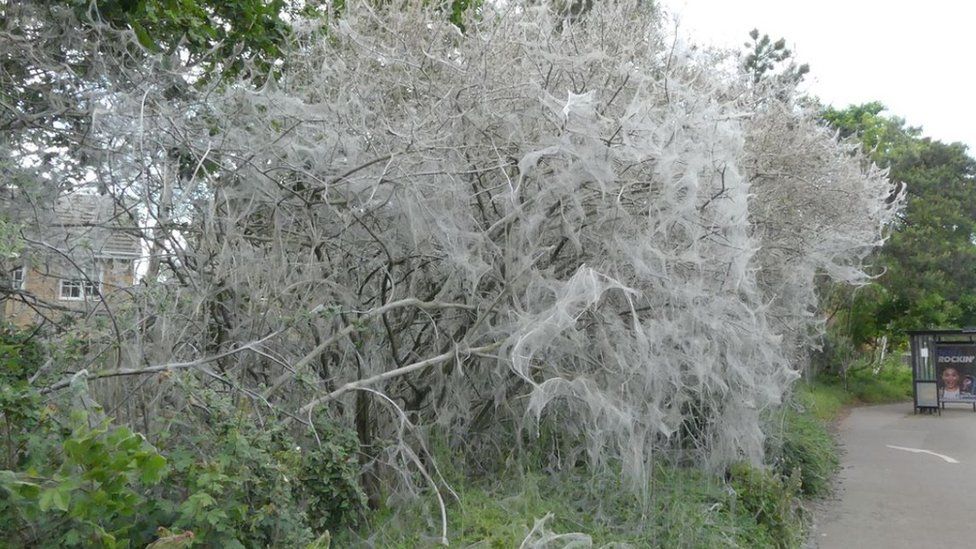
Hungry caterpillars have covered a 100ft (30m) expanse of trees in a huge ghostly-looking web.
The webbing has been created by ermine moth caterpillars along a stretch of the A5134 close to Bedford.
They do it to protect themselves from predatory birds while they are feeding.
Caterpillar expert Andy Banthorpe said the vast webbing could indicate a "caterpillar population explosion" after last year's warm summer, but it, and the caterpillars, were harmless.
Mr Banthorpe, joint county moth recorder for Bedfordshire, has been out to see the webs and said they were "quite fantastic", but agreed they could look quite spooky.
"It looks quite ghostly, like some superb, natural Halloween display a few months too early," he said.
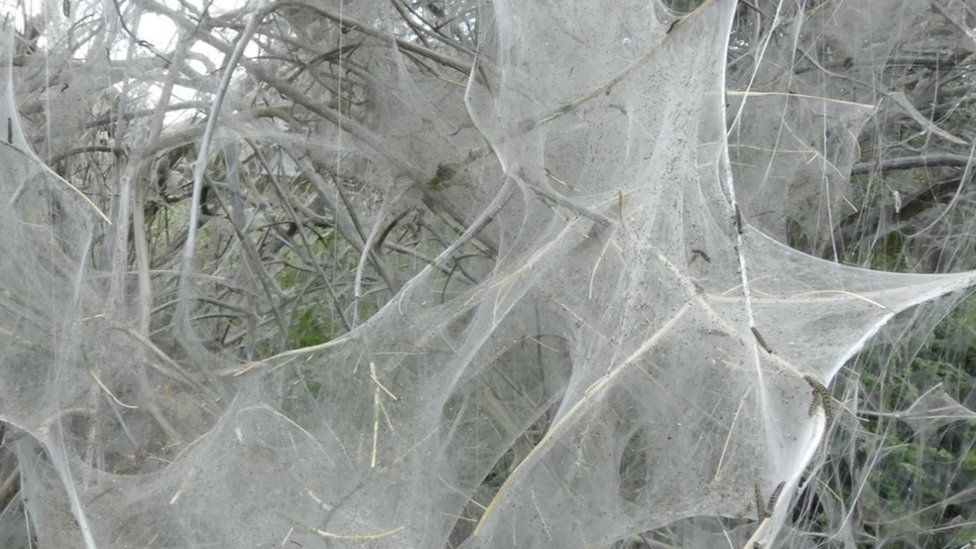
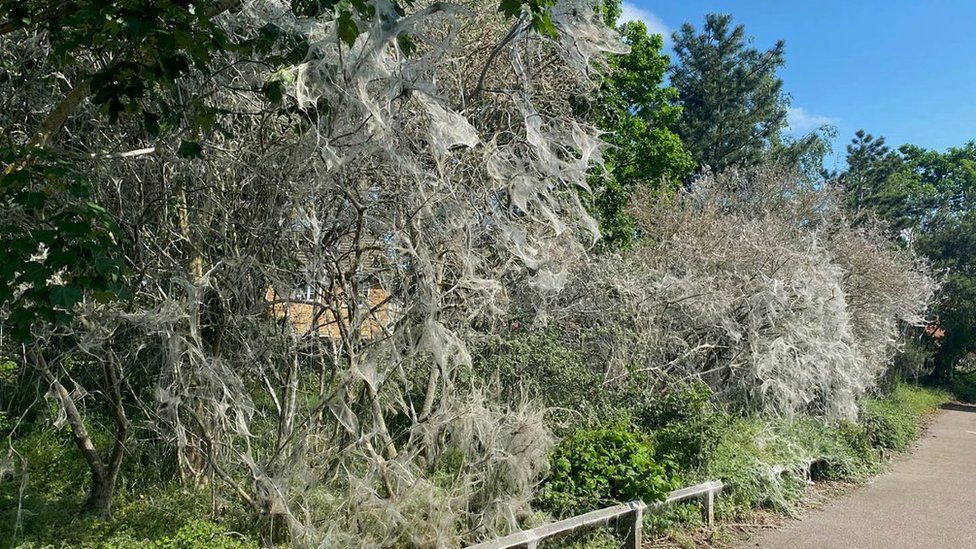
"Don't worry, you're not suddenly going to get enveloped by it as you stand chatting to your friends along the road."
The giant web is "the larval feeding web of a small moth called the spindle ermine", he said.
"There are eight species of these little moths in this country and they feed on different plants - and in this case it's feeding on a plant called the common spindle.
"The larval web is silk that the caterpillars excrete," he said.
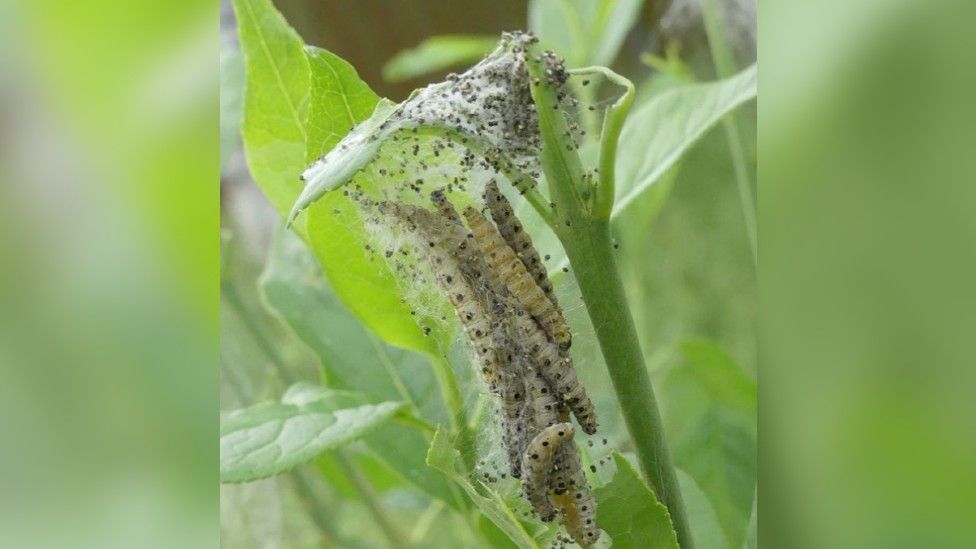
"They create this big silken web to stop the birds getting at them so they can feed on the leaves of the plant."
Mr Banthorpe said the caterpillars on that stretch of the road had "completely eaten all the leaves" from some of the trees.
"It's just one of these natural, wonderful phenomena that you see occasionally," he added.

The charity Butterfly Conservation said on its website that although the "ghostly silken webbing... can look rather sinister", the caterpillars were harmless.
It said the webs would gradually disappear over the summer.
Dr Phil Sterling, from the charity, said even if leaves were stripped from trees and shrubs, the plants would survive, and "by the end of July, it will be like the caterpillars weren't there".
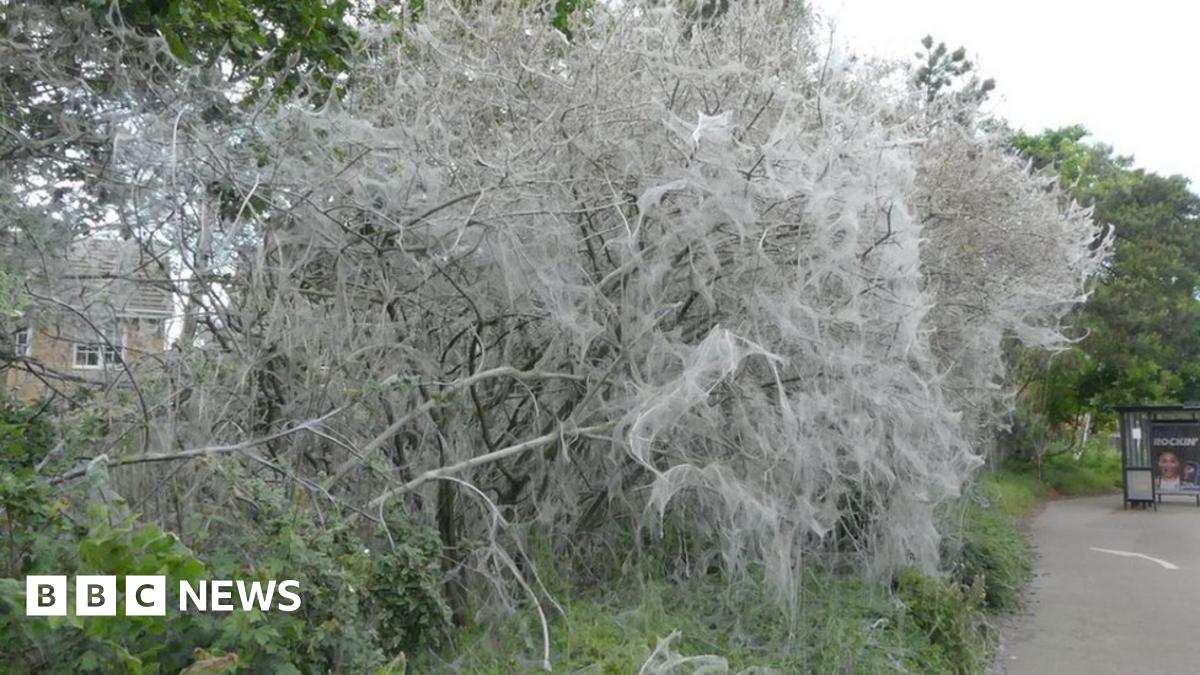
Ghostly caterpillar webs cover Bedford trees
The vast expanse of webs are down to a "caterpillar population explosion", an expert says.

